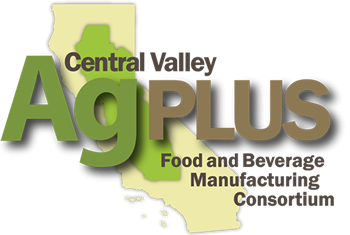
UC ANR Healthy Communities Blog
By Pamela Kan-Rice
To enhance funding for food and agriculture businesses in the Central Valley, more than 60 people involved in small business finance gathered at the AgPlus Funders Forum Dec. 12 to contribute ideas.
Representatives from financial institutions, economic development organizations, universities, government agencies and innovative funders like community development financial institutions (CDFI) attended. Participants shared innovative financing tools for business and discussed obstacles for people in rural communities to access capital at the forum at the UC Agriculture and Natural Resources building in Davis.
Two primary challenges faced by people trying to start a new business are figuring out how to get started – such as their supply chain – and gaining access to capital to finance their endeavor, according to keynote speaker Glenda Humiston, University of California vice president for agriculture and natural resources.
“There are actually an array of sources of capital beyond just the traditional bank loan, the problem is people don’t know about them or how to access them,” Humiston said. She added that much more capital could be available to Central Valley businesses if residents would invest locally. “If you had brought home just one percent of the retirement accounts held by people in the AgPLUS region back in 2010, you would have had over $1 billion to invest in this region,” she said.
Marc Nemanic of 3CORE, Carrie Ellinwood of U.S. Small Business Administration, Ismael Herrero of Fresno State’s Office of Community and Economic Development, and Catherine Howard of Northern California Community Loan Fund discussed some of the challenges for financing new businesses and alternatives to traditional bank loans.
Nemanic noted that many millennials are carrying student loan debt, which may make them averse to taking on more debt or prevent them from qualifying for business loans.
Howard said her organization is creating a tool to help people satisfy collateral requirements for credit.
To build their businesses, entrepreneurs often need technical assistance so Herrera’s office pairs young companies with experienced mentors and other services. Herrera said he is working to create public and private partnerships in rural communities, such as commercial kitchens for people to turn farm produce into value-added products to sell at farmers markets.
Panelists pointed out that jobs in the gig economy, such as driving for Uber or Lyft, don’t provide the stable income that tradition lenders seek in borrowers so they need to create a flexible product.
In the afternoon, participants split into four groups to focus on identifying opportunities for supporting economic development, supporting small business and microenterprises, effective intermediaries to connect investors with entrepreneurs, and regional finance funds. Each topic was discussed by a diverse group of people as peers and experts, bringing their own expertise to the table.
To address the interplay between higher education, student debt and the structural changes in the nation’s economy, Meg Arnold, who moderated the session, said she could foresee policy implications.
“Student debt is not forgivable,” said Arnold, managing director of Valley Vision. “At the same time we are making a four-year university degree both more necessary and less affordable, the economy is also changing, to the point that some graduates may need to think of self-employment or gig economy employment.”
The discussions identified many other challenges for the food and agriculture sectors in rural parts of the state that need to be overcome to access capital.
“We need everybody who participated today to share those examples of where something kind of unique or innovative is really working,” said Humiston.
Ideas generated during the forum will be used to inform the work of the Central Valley AgPLUS Food and Beverage Manufacturing Consortium, which hosted the AgPlus Funders Forum. The information will also be used by Humiston to update the 2012 Access to Capital Report by California Financial Opportunities Roundtable (CalFOR). The report highlights financial needs for businesses in California, reviews financial tools and capital sources and provides policy recommendations. Humiston will also convey the outcomes to the California Economic Summit.
The AgPlus Funders Forum was sponsored by Chase Bank, Valley Vision, the Center for Economic Development, First Northern Bank, the Federal Reserve Bank of San Francisco, Employment Training Panel, Blue Tech Valley, Fresno State Community and Economic Development and UC ANR.
Above: Glenda Humiston discusses funding sources that many people are not aware of.
Go to full story at UC ANR Healthy Communities Blog
